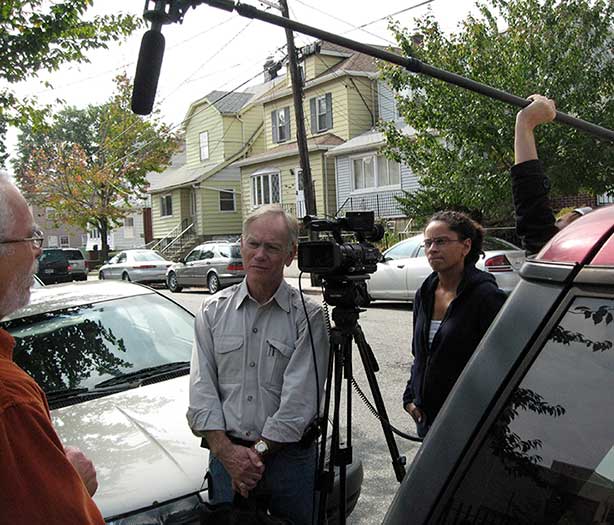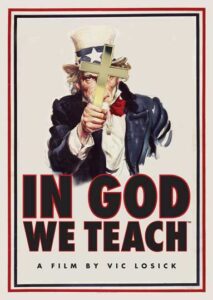When I first visited with the LaClair family and listened to Matthew’s secretly made recordings I thought that his history teacher, David Paszkiewicz had indeed “crossed the line,” and therefore I was not interested in pursuing the story. I was then shown Paszkiewicz’ recently-published letter in the local Kearny newspaper, The Observer. In it Paszkiewicz stood his ground and felt that he had not “crossed any line.” He cited letters of Jefferson, Franklin and Washington as support for his claims; claims that many other Americans believe as well. Now this defense I thought had the makings for an engaging documentary.
The viewer soon discovers that I am not a lawyer, theologian, historian, or philosopher, but that I am simply a documentary filmmaker; so my approach to this material is solely from the perspective of a layman. And as the product of the New Jersey public school system myself (K through Rutgers) the Kearny HS story had a special resonance.
While Matthew & his family soon agreed to participate in my new endeavor, David was extremely reluctant. In fact, the only time that David had answered any questions was when he was swamped by the press as he entered and departed a Board of Education meeting. Over the next several months David & I had many conversations in which I made my case promising an even-handed exploration of these “church & state” issues. I stressed that I would go right down the middle and attempt to present all of David’s major arguments as well as Matthew’s. David took a leap of faith and trusted me, and I have carried the responsibility of those pledges at every step of this production. I believe I have lived up to them.
The dispute between Matthew LaClair & David Paszkiewicz also incorporated the town of Kearny itself, which in a way, became the third “character” in the film. As with most other small American towns Kearny felt uncomfortable with all the press attention, and its residents were reluctant to even speak with “outsiders.”
I am very naïve. And that was particularly evident when it came to thinking that Kearny officials would co-operate with me & this project. I was shocked when every public official refused to answer any questions and just wanted me and my cameras to go away. I was stone-walled. The Kearny Board of Education (an elected body) felt that they had fulfilled their responsibilities to the media by issuing several “press releases.”
I felt that all this attention presented the Kearny schooI system with a perfect “teaching moment.” After all, I was taught that discussion and dissent are the patriotic duties of an informed citizenry. What I came to realize was that even though the Founders themselves passionately argued these very same issues, Americans would rather talk about anything other than religion and politics.
By focusing closely on specific events in Kearny, the larger, national implications for America are better illuminated. Sometimes the big story can best be understood when it has a human face and a local setting.



